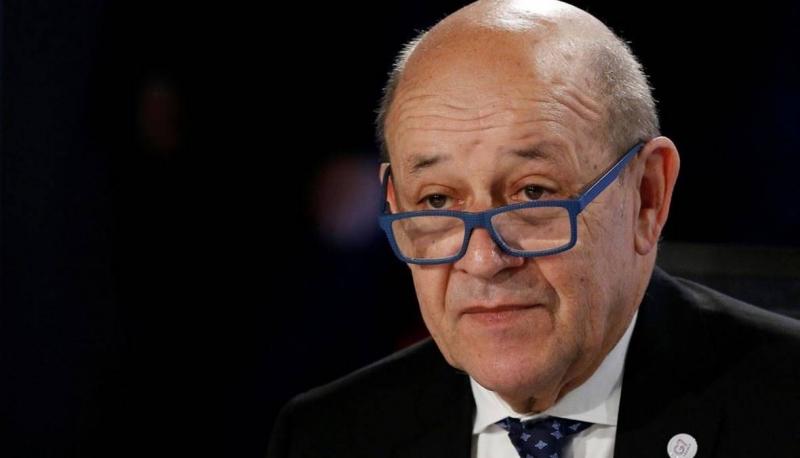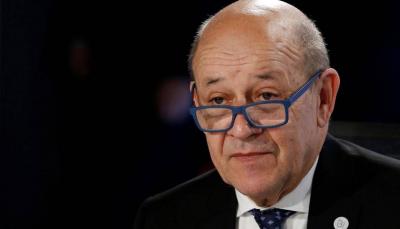The French presidential envoy to Lebanon, Jean-Yves Le Drian, will embark on a broad round of meetings today as part of his open presidential mission in Lebanon, amidst signs of renewed French momentum to revive a mediation that has long stalled and has yet to clear the deadlock obstructing it, similar to other internal and external efforts to end the ongoing presidential vacancy that has persisted for a year and a month. However, Le Drian's arrival in Beirut, marking the resumption of his mission, signifies Paris's persistence and unwillingness to retreat from advancing its presidential initiative. This time, it carries an additional dimension of considerable sensitivity and danger regarding the risk of Lebanon slipping into war with Israel, which would give new and urgent significance to the French initiative and highlight the importance of the approaches and ideas Le Drian will bring.
Notably, on the first day of his mission, Le Drian will meet with Maronite Patriarch Bechara Al-Rahi, Speaker of Parliament Nabih Berri, Prime Minister Najib Mikati, and the head of the Lebanese Forces party, Samir Geagea. In an additional indication of French-Saudi coordination regarding Lebanon, Le Drian met yesterday in Riyadh with Saudi Royal Court Advisor Nizar Al-Haloua, and the French ambassador in Riyadh, Ludovic Pouille, indicated on social media that “the meeting was fruitful and that France and Saudi Arabia are working hand in hand for the stability and security of Lebanon and to conduct the Lebanese presidential elections as soon as possible.”
“An-Nahar” reported from Paris that there are two political and security messages in Le Drian's visit to Beirut. The first includes two political proposals for electing a president as soon as possible. The first proposal involves holding a conference in Doha similar to the previous Doha conference in an attempt to secure a consensus among Lebanese players on a candidate to be elected consensually. In this context, Paris does not support any candidate and leaves it to the Lebanese parties to agree on, under the auspices of the Quintet Group (France, the United States, Egypt, Saudi Arabia, and Qatar). However, Qatar is not enthusiastic about holding this conference in Doha. The second proposal requests that the Quintet Group ask Speaker Nabih Berri to open an electoral session to elect a president from the proposed names, with the sessions remaining open until a president is elected. However, this proposal is not available yet, as the stances of the parties are more rigid than prior to the Gaza war. Nonetheless, Paris aims to keep the Lebanese file alive through reopening the issue of filling the presidential vacancy, ensuring Lebanon remains a part of discussions regarding the future of the Middle East, despite having lost significant leverage over some parties following President Emmanuel Macron's positions alongside Israel after Hamas's attack on the Gaza border.
Regarding the security file, Paris harbors significant fears of Lebanon being dragged into a devastating war with Israel. During his visit, Le Drian will reaffirm the French position advocating for keeping Lebanon out of this war and not threatening UN Security Council Resolution 1701, which has ensured stability along Lebanon's borders since 2006.




